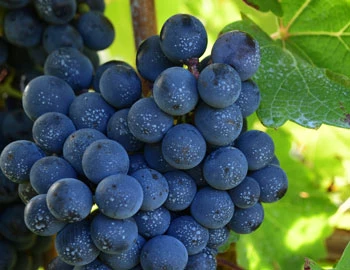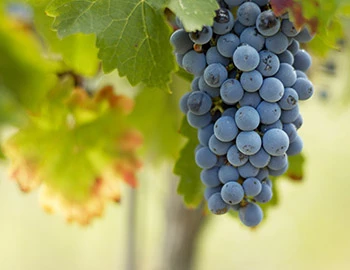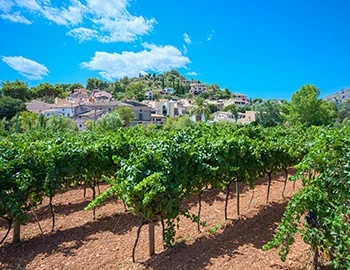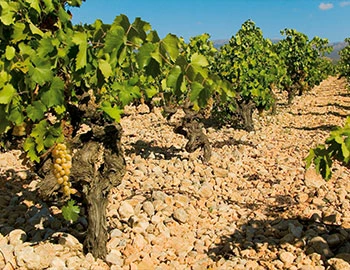
Cleda 2021
Vi de la Terra de Mallorca, Atlan & Artisan, 750 ml

| Grape variety: | Merlot, Cabernet Sauvignon |
| Producer: | Atlan & Artisan |
| Origin: | Spain / Mallorca |
Description
Ready for the island? This cuvée from Mallorca brings sunshine into your winter!
The grapes come from vineyards overlooking the northern bay of Pollença, which means they enjoy not only the sun but also the cooling winds from the sea. Harvesting is done exclusively by hand, and this care continues in the cellar. The result is a highly balanced wine: on the nose, dark berry aromas such as blackberry, blueberry and Amarena cherry, paired with delicate, fresh and floral notes reminiscent of roses and violets. The palate is juicy with well-integrated acidity and silky tannins. Our recommendation: if you drink this wine young, allow it an hour or two in the carafe beforehand. PS.: the dog that adorns the label is the typical house and farm dog of the Balearic island "Mallorca Sheepdog" and watches over the winery and its precious treasures day and night.
Attributes
| Origin: | Spain / Mallorca |
| Grape variety: | Merlot, Cabernet Sauvignon |
| Ripening potential: | 2 to 15 years |
| Drinking temperature: | 16 to 18 °C |
| Food Pairing: | Roast saddle of venison, Saddle of lamb fillet with herb jus, Wild specialities, Wild fowl, Châteaubriand, Filet Wellington, Wild boar entrecôte with Spätzli |
| Vinification: | fully destemmed |
| Harvest: | hand-picking, in small boxes |
| Maturation: | in partly new and used barriques/ Pièces, in large wooden barrel/foudre |
| Maturation duration: | 12 months |
| Volume: | 14.0 % |
| Note: | Contains sulphites |
Cabernet Sauvignon
The backbone of Bordeaux
The Cabernet Sauvignon gives the Bordeaux its backbone, yielding deep violet wines with powerful tannins and endless ripening potential. It is the top dog in Médoc, and is placed in all five premier crus of Bordelais. When young, it often appears strict and unapproachable, but with advancing years, its tannins round off. It is wonderfully velvety, and yet always maintains its freshness. Typical flavours include cassis, graphite and cedar. Wherever Cabernet Sauvignon is found, Merlot is not far away. It complements the robust structure of Cabernet with softness, fruit and richness. The Cabernet Sauvignon is the most-exported vine in the world. It delivers persuasive qualities in Italy as an ingredient of the Super Tuscan, or as the flagship variety from California. There, it is lovingly titled “Cab Sauv”. Meat fans should be aware that it fantastically accompanies a grilled entrecôte. The family tree of Cabernet Sauvignon is surprising: its parents are Cabernet Franc and the white Sauvignon blanc.

Merlot
Everybody’s darling
Merlot is the most charming member of the Bordeaux family. It shines with rich colour, fragrant fullness, velvety tannins and sweet, plummy fruit. It even makes itself easy for the vintner, as it matures without issue in cool years as well. This is in contrast to the stricter Cabernet Sauvignon, which it complements as a blending partner. Its good qualities have made the Merlot famous worldwide. At over 100,000 hectares, it is the most-planted grape in France. It also covers large areas in California, Italy, Australia and recently in Eastern Europe. The only catch is that pure Merlot varieties rarely turn out well. Its charm is often associated with a lack of substance. Only the best specimens improve with maturity. They then develop complex notes of leather and truffles. This succeeds in the top wines from the Bordeaux appellation of Pomerol and those from Ticino, among others.

Mallorca
Mallorca: new premium wines from old varieties
The party island is showing an entirely different, more delightful side: every year, more premium wines are produced in Mallorca. While international varieties like Chardonnay, Cabernet Sauvignon and Merlot yield excellent wines in Mallorca’s terroir, top winemakers increasingly use the best native varieties, such as Manto Negro, Callet and Prensal Blanc. The results are independent wines with Mediterranean charm and surprising freshness.

Spain
Spain – Variety and perfection
“Somewhere in la Mancha, in a place whose name I do not care to remember...,” begins Don Quixote's odyssey.
The most famous part is definitely when Don Quixote thinks windmills are his enemy and wants to fight them – until they nearly kill him. It’s possible there was a bit too much of the La Mancha wine at play. Spanish vines fight for their survival in rugged landscapes, battling fierce drought and rough soils. But they fight well.


